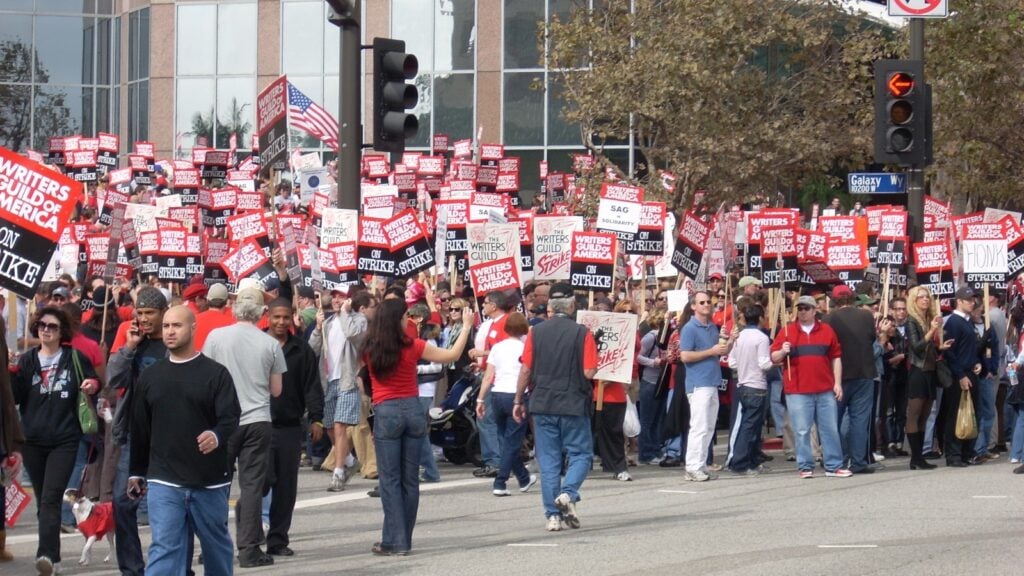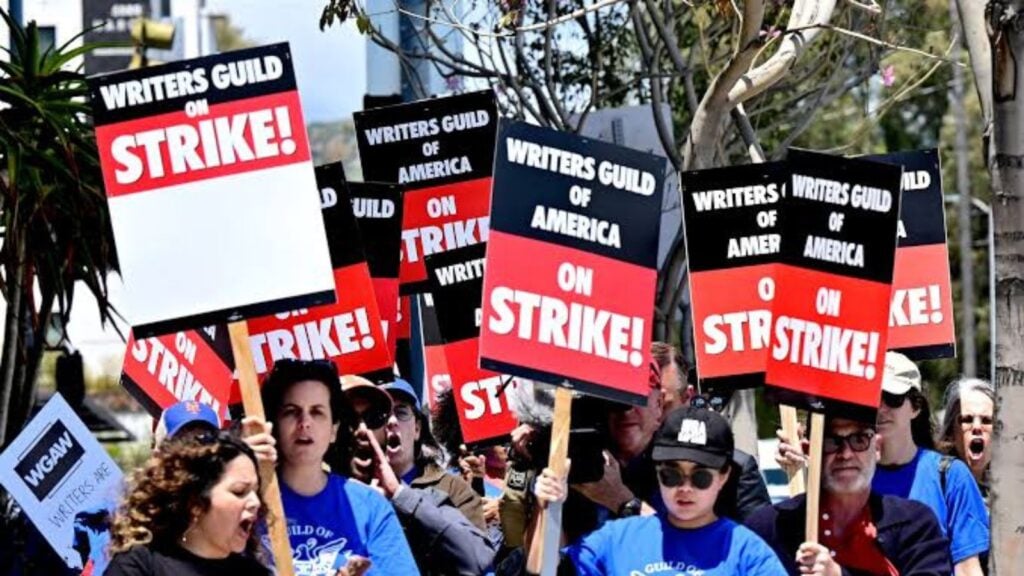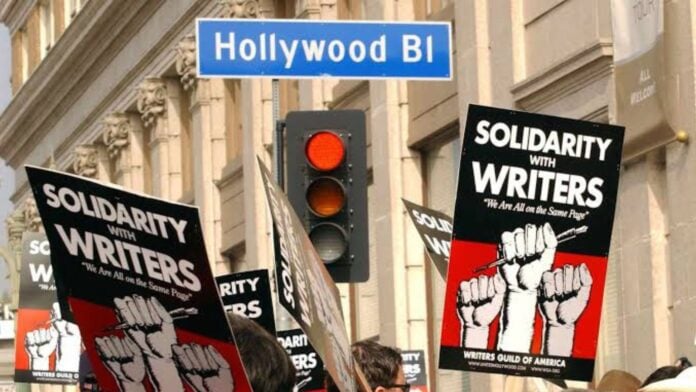The SAG-AFTRA strike was one of the biggest Hollywood strikes that shook the industry, after which the WGA levied for equal pay and stricter artificial intelligence rules. However, its impact is not looking good for the script writers in the latest report released by the WGA. The report showing employment and earning from last year is of great concern.
Though the strike was expected to make things better for the fraternity, it does not seem to have worked for the screenwriters. The statistics as per a recent report suggests that the screenwriters faced major losses because of it. Here’s what the recent report says.
Related: Drew Barrymore To Resume Her Talk Show Amidst The WGA And SAG-AFTRA Strikes
WGA Report Raises Concerns For Show Writers

The SAG-AFTRA strike, that lasted for a long time and even led to some significant delays and halts in some major productions, was expected to bring about a change in the working conditions in the industry. The strike was mainly aimed against the increasing reliability on Artificial Intelligence and the threat it poses for the creative community. However, it seems that it has caused a significant damage to script writers because of how long it lasted.
Though it was considered successful, a recent report from the WAG reveals that TV and film writer earnings fell $603 million last year, or about 32%, as the end of what is called “peak TV” coincided with a 148-day strike by the Writers Guild of America. As per the report, writer earnings dropped to $1.29 billion in 2023.
This is reportedly the lowest since the writers strike in 2007-08. While it was known that screenwriters in Hollywood were struggling, the extent of their loss have been highlighted in the report, and raises further alarm.
In the report, the union said the steep declines reflected “both the industry contraction and the companies’ refusal to negotiate a fair deal, resulting in a five-month strike that ended once the companies agreed to address issues across the membership.” It also said, “In this turbulent period, writers in all fields reported declines in employment and earnings.”
In Case You Missed: Stephen Colbert, Jimmy Fallon, Jimmy Kimmel, Seth Meyers And John Oliver Team up For New Limited Podcast ‘Strike Force Five’ Amid WGA Strike
Why Changes Did SAG-AFTRA Strike Bring?

After months of protesting at the picket fence, the WGA strike resulted in scale wage increases of 5%, 4%, and 3.5% over the three-year term of the contract. The deal also included script fees for TV staff writers, full pension and health contributions for writing teams, and a guaranteed second draft for feature writers.
The invaluable deal is estimated at $233 million for each year of the contract. The deal also includes minimum staff sizes for TV shows not written by a solo writer, and most importantly, a measure to prevent AI-written material from reducing writers’ pay or credit. The union also won a 50% residual bonus for the most watched made-for-streaming TV shows.
You Might Also Like To Read:





